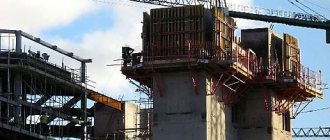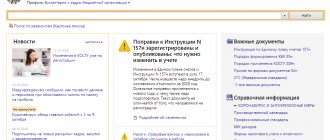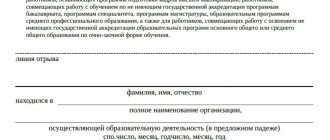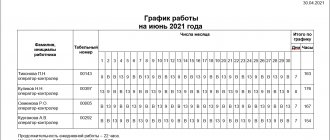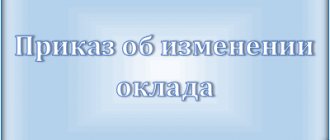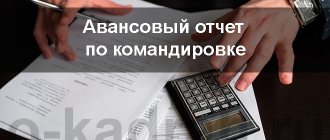What is an inspection from the point of view of the Tax Code of the Russian Federation?
Tax authorities can carry out such tax control measures as inspection - examination of production, warehouse, retail and other premises, as well as the territories of companies and citizens.
This right is established in sub-clause. 6 clause 1 art. 31, paragraph 1, art. 82, paragraph 13 of Art. 89, paragraph 2 of Art. 91, art. 92 of the Tax Code of the Russian Federation, as well as in paragraph 4 of Art. 7 of the Law of the Russian Federation “On the tax authorities of the Russian Federation” dated March 21, 1991 No. 943-I.
Tax officials have the right to conduct an inspection during desk or field tax audits.
How a desk audit for VAT is carried out, find out from the material Desk tax audit for VAT: deadlines and changes in 2020. "
The inspection is carried out if it is necessary to clarify any circumstances that are important for the completeness of the inspection (Clause 1 of Article 92 of the Tax Code of the Russian Federation). Tax authorities determine whether there is a need independently.
No special decision to conduct an inspection is made. For this purpose, a decision to conduct an on-site inspection and the official IDs of the inspectors are sufficient. If the inspection is carried out as part of a desk audit for VAT, the inspector conducting the inspection is obliged to issue a reasoned resolution in the form given in Appendix No. 15 to Order of the Federal Tax Service of Russia dated November 7, 2018 No. ММВ-7-2 / [email protected]
ConsultantPlus experts explained whether tax authorities can conduct inspections outside the framework of tax audits. Get trial access to the system and go to the Ready-made solution.
Another tax control trend is the inspection of all your property
06/13/2019 The inspection is carried out to determine how well the information you provided and the declared indicators correspond to the real state of affairs.
For example, tax authorities want to make sure that the office is operational, warehouse or production facilities are available. That the premises were actually repaired, which you recognized as expenses and for which you claimed VAT reimbursement. Or that the area of the sales floor actually corresponds to the value reflected in the declaration/calculation for UTII and does not exceed the permissible values.
And of course, they come for an inspection to see if you are doing something that would be extremely fiscally interesting. Maybe some kind of stamps, blank forms from other people's offices, people not working in the company, strange companies or other suspicious fabrications. Suddenly something catches your eye, or careless employees blurt something out.
Tax officers often come for inspection accompanied by police officers. For what? To keep you in good shape. The methods are stricter, the requirements are louder and more specific.
We behave very carefully. No fuss. No aggression. Definitely without fear. Nothing like this has happened yet - they are inspecting and looking for something. But if your business is clean, and you know how to behave and are ready not to obey, but to act, you should not be afraid of negative results. Therefore, after the natural slight excitement of a sudden visit, calm down, collect yourself, and tune in to a business-like tone. And start working with auditors, trying to manage the situation and keep all actions under control.
What can be inspected and what cannot?
In accordance with sub. 6 clause 1 art. 31, paragraph 13 art. 89 of the Tax Code of the Russian Federation, tax authorities can inspect premises: production, warehouse, retail and any others, as well as territories that the taxpayer uses to generate income or that are related to objects of taxation, regardless of their location.
Inspection, in accordance with clause 2 of Art. 91, art. 92 of the Tax Code of the Russian Federation, documents and objects, including taxable items belonging to the taxpayer, may also be subject to taxation.
Find out whether inspectors can inspect computers and the software installed on them here .
NOTE! Illegal refusal (obstruction) of access to a tax authority official conducting an audit (inspection) is recognized as an administrative offense and entails liability under Art. 19.7.6 of the Code of Administrative Offenses of the Russian Federation in the form of a fine in the amount of 10,000 rubles.
It is prohibited for representatives of the tax authority to enter the residential premises of individuals who are not individual entrepreneurs without their permission and against the will of the residents (Clause 5 of Article 91 of the Tax Code of the Russian Federation). The exception is if the inspectors have a court decision (clause 1 of the letter of the Federal Tax Service of the Russian Federation dated May 23, 2013 No. AS-4-2/9355).
Assess the likelihood of your company being included in the inspection plan of the Federal Tax Service Inspectorate using the material “Tax audits in 2021 - list of organizations.”
Participants of the inspection
The following must be included in the inspection:
- Inspector (clause 1 of article 92 of the Tax Code of the Russian Federation).
- Witnesses (clause 3 of article 92 of the Tax Code of the Russian Federation). Any disinterested persons in the amount of at least 2 people can be invited as witnesses (Clause 2 of Article 98 of the Tax Code of the Russian Federation). Witnesses must confirm the content and results of the inspection, the facts identified (clause 5 of Article 98 of the Tax Code of the Russian Federation).
The taxpayer has the right to participate in the inspection personally or through his representative (Clause 3 of Article 92 of the Tax Code of the Russian Federation). Tax authorities are obliged to provide the taxpayer with the opportunity to exercise his right, namely: to notify him of the time and place of the inspection. The courts come to this conclusion (resolution of the Federal Antimonopoly Service of the Moscow District dated August 19, 2009 No. KA-A41/8084-09).
The necessary specialists may be invited to carry out the inspection (clause 3 of Article 92, Article 96 of the Tax Code of the Russian Federation).
Rules for conducting an inspection and recording its results
The Tax Code of the Russian Federation does not establish special rules for conducting inspections.
In accordance with paragraph 5 of Art. 92 of the Tax Code of the Russian Federation, the results of the inspection are documented in a protocol.
The form of the protocol for the inspection of territories, premises, documents, objects is given in Appendix No. 16 to the Order of the Federal Tax Service of Russia dated November 7, 2018 N ММВ-7-2/ [email protected]
The inspection protocol must comply with the general requirements established in Art. 99 Tax Code of the Russian Federation:
- The protocol is drawn up in Russian (clause 1 of article 99 of the Tax Code of the Russian Federation).
- The protocol indicates (clause 2 of article 99 of the Tax Code of the Russian Federation):
- its name;
- place and date of drawing up the protocol;
- start and end times of the inspection;
- position, surname, name, patronymic of the person who drew up the protocol;
- information about the persons who participated in the inspection;
- information about the objects of inspection and their location;
- a detailed description of the inspection results.
The protocol is signed by all persons who took part in the inspection. In this case, the taxpayer (his representative), witnesses and present specialists can enter into the protocol or attach their comments to it (clause 3 of Article 99 of the Tax Code of the Russian Federation). If necessary, during the inspection, photography, filming, video recording are carried out, copies of documents are taken, or other actions are taken (clause 4 of Article 92 of the Tax Code of the Russian Federation). At the same time, according to clause 5 of Art. 99 of the Tax Code of the Russian Federation, photographic photographs and negatives, films, videos and other materials obtained during the inspection are attached to the protocol.
If you have access to ConsultantPlus, find out what protocol requirements must be met . If you don't have access, get trial of online legal access.
Consequences of violations committed during inspection
Practice shows that during inspections, tax authorities often violate the rules of the Tax Code of the Russian Federation and provide unacceptable evidence of the taxpayer’s guilt. This makes it possible for taxpayers to challenge the results of such an inspection, and for the courts not to accept them as evidence of guilt. Significant violations, from the point of view of the courts, are:
- Absence of witnesses during the inspection (resolution of the Arbitration Court of the Ural District dated August 13, 2015 No. F09-5158/15 in case No. A60-41279/2014);
- absence in the inspection protocol: precise information about the object that was inspected (resolution of the FAS of the East Siberian District dated 02/16/2011 No. A78-4644/2010), passport data of the witnesses present during the inspection (resolution of the FAS Povolzhsky District dated 04/01/2014 No. A72-12341 /2012);
- the presence of interested parties during the inspection as witnesses (resolution of the 9th Arbitration Court of Appeal dated September 2, 2013 No. 09AP-4678/2013 in case No. A40-85714/12);
- the conclusions in the inspection report, based on the inspection results, contain contradictions (resolution of the 20th Arbitration Court of Appeal dated June 22, 2015 in case No. A68-5524/2014);
- the inspection was carried out before the start of the inspection or after its completion (resolution of the AS of the Ural District dated 08/13/2015 No. F09-5158/15 in case No. A60-41279/2014).
In some cases, it may be necessary to involve a specialist with special knowledge and skills to conduct an inspection. According to some courts, based on the norm of paragraph 1 of Art. 96 of the Tax Code of the Russian Federation, the protocol of the inspection carried out without the participation of such a specialist does not prove the conclusions of the tax authority (see also Resolution of the 15th Arbitration Court of Appeal dated October 21, 2014 No. 15AP-14691/2014).
It should be noted that the courts pay attention to violations of those rules that are aimed at protecting the rights of the taxpayer during the inspection. A typo in the protocol or even incorrect completion of its form, provided that this does not affect the rights of the taxpayer, is not, from the point of view of the courts, a basis for recognizing the inspection protocol as inadmissible evidence.
Constitutional Court of the Russian Federation: IT IS IMPOSSIBLE TO CONDUCT A SEARCH UNDER THE GENERAL OF AN INVESTIGATION
The Constitutional Court of the Russian Federation, in its ruling dated December 1, 1999 No. 211-O6, noted: the conduct of operational investigations accompanying the conduct of a preliminary investigation in a criminal case cannot replace the procedural actions provided for by the Code of Criminal Procedure.
In the ruling dated 02/04/1999 No. 18-O7, the Court stated that the operational investigative activity and the relevant operational-search measures carried out during its implementation do not replace the procedural actions carried out during the inquiry and preliminary investigation. The results of an operational investigation are not evidence, but only information about the sources of those facts that, having been obtained in compliance with the requirements of the Law on Operational Investigation, can become evidence after they have been secured through the proper procedural means.
The Constitutional Court expressed its legal position on the issues of inspection of residential premises within the framework of the operational investigation in its ruling dated February 19, 2009 No. 114-O-O8. In it, the Constitutional Court of the Russian Federation analyzes the following situation: an employee of the FSB of Russia, having a court decision on the right to conduct an operational investigation “inspection of premises, buildings, structures, areas of terrain and vehicles” at Maltsev’s place of residence, entered his apartment. While at the applicant’s home, in the presence of witnesses, he first searched Tkachev, from whom money marked “bribe” was seized. Then he carried out an inspection of Maltsev’s apartment, as a result of which money marked “bribe”, two mobile phones and some other items were also seized.
The actions of the FSB detective to inspect the apartment and confiscate money and telephones were appealed in court. The judge of the Yuzhno-Sakhalin City Court dismissed the complaint, pointing out that an assessment of the actions of the detective may prejudge the court's conclusions when considering the case on the merits (resolution dated July 2, 2008). The Sakhalin Regional Court canceled this decision and terminated the proceedings on the complaint, since the actions of operational employees are not subject to appeal under Art. 125 of the Code of Criminal Procedure of the Russian Federation (cassation ruling dated July 30, 2008).
The Constitutional Court indicated that Art. 8 of the Law on Operational Surveillance determines only the conditions for carrying out operational searches and does not affect the issues of confiscation of personal property of citizens. These issues are regulated by other legislation. Thus, a public examination should not be confused with a criminal procedural search or administrative search. They have their own reasons, procedure and order of fixation.
In its ruling dated November 20, 2014 No. 2557-O9, the Constitutional Court of the Russian Federation again stated that the Law on Operational Investigations does not regulate criminal procedural legal relations, and therefore relations related to the receipt, verification and evaluation of evidence. The materials of the operational investigation in themselves are not a procedural source of evidence. They act only as material carriers of information about the circumstances of the crime and the persons who committed it.
A.V. Smirnov names only investigative and other procedural actions as legal methods of proof. Since information must be obtained specifically from criminal procedural sources, information obtained as a result of operational investigative activities cannot be recognized as such. After conducting an operational investigation, the investigative body, in addition to drawing up operational investigation reports, is obliged to immediately initiate a criminal case. Then, instead of drawing up and presenting as evidence acts of inspection of premises or prompt collection of samples for comparative research, the body of inquiry must carry out urgent investigative actions: a search or inspection of the crime scene, as well as obtain samples for comparative research 10 .
Results
Inspection of premises and territories allows tax authorities to obtain evidence of various tax offenses. It is carried out during a tax audit in the presence of witnesses and with the participation of specialists (if necessary). The person being inspected has the right to be present during the inspection, and the results of the inspection are documented in a protocol.
Sources:
- Tax Code of the Russian Federation
- Order of the Federal Tax Service of Russia dated November 7, 2018 N ММВ-7-2/ [email protected]
You can find more complete information on the topic in ConsultantPlus. Free trial access to the system for 2 days.
Denial of access to inspectors
If during an inspection (on-site or desk for VAT) an organization prevents inspection employees from accessing its territories and premises (with the exception of residential premises), the head of the inspection team draws up a report on this in the form approved by order of the Federal Tax Service of Russia dated March 6, 2007 No. MM -3-06/106. The act must be signed on both sides: by the head of the inspection team and by a representative of the organization being inspected. If a representative of the organization refuses to sign the act, the head of the inspection group will make an appropriate entry about this in the act. This follows from the provisions of paragraph 3 of Article 91 of the Tax Code of the Russian Federation.
In addition, the inspection will have the right to independently determine the amount of tax to be paid (paragraph 2, paragraph 3, article 91 of the Tax Code of the Russian Federation). In this case, in its calculations, the inspection will not rely on the actual data that it could obtain during the inspection, but on other information available to it. For example, the inspection may use information obtained from other organizations similar to the one being inspected. This follows from the provisions of paragraph 2 of paragraph 3 of Article 91 of the Tax Code of the Russian Federation.
The tax inspectorate also has the right to fine the organization and its officials.
